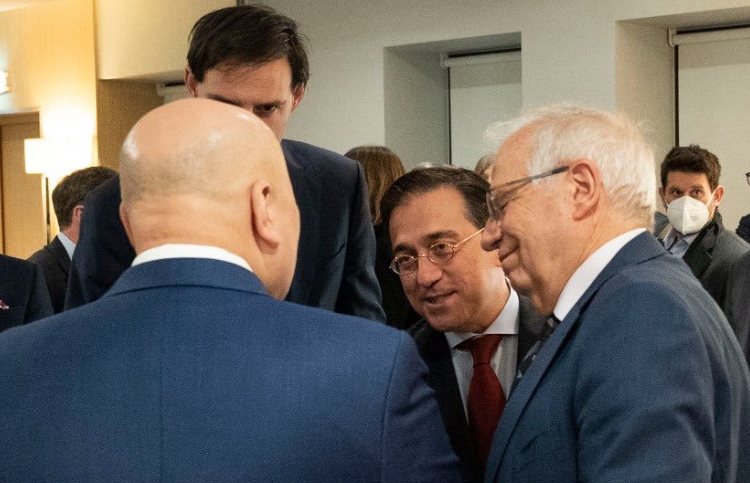The Diplomat
The EU Foreign Affairs Council (FAC) yesterday endorsed the fifth package of sanctions against Vladimir Putin’s regime, including the embargo on Russian coal, and set as its next target the extension of sanctions to oil in order to prevent the financing of the invasion of Ukraine.
“Russian aggression against Ukraine can be qualified in two words,” EU High Representative for Foreign and Security Policy Josep Borrell told the press conference following the meeting, held in Luxembourg. “The first is ‘failure’, a great failure of the Russian Army, and the second is ‘horror’, what the Russian Army has left behind are dead civilians, destroyed cities, indiscriminate bombardments,” he continued. “The upcoming Russian offensive in the east makes us even more determined to continue to support Ukraine,” he warned.
For that reason, Borrell explained, the foreign ministers stressed the importance of seeking accountability for Russia’s violations of international law in Ukraine and pledged to support International Criminal Court (ICC) prosecutor Karim Khan (who was present in Luxembourg), to provide financial assistance to the Ukrainian Prosecutor’s Office and to deploy an EU advisory mission on the ground to cooperate in the investigation and collection of evidence. The EU will also continue to support Ukraine politically, financially and militarily, thereby endorsing the proposal to mobilize an additional €500 million for arms deliveries to Ukraine under the European Peace Support Fund, which has already earmarked €1.5 billion for this purpose.
The ministers also assessed the implementation of sanctions. In this regard, Borrell explained at the press conference that the Foreign Affairs Council had set itself the goal of including the embargo on Russian oil in the next package of sanctions on Russia. “It is important to start with oil, which represents a large bill and is easy to replace,” stated Borrell, who recalled that the EU paid in 2021 four times more for the supply of crude oil (80 billion) than for gas (20 billion). “At the moment we have not come to close a binding collective method, but each one does it on its own side and there are plans to end this dependence,” he added.
In this regard, the Foreign Minister of Germany (one of the countries most dependent on Russian fossil fuels), Annalena Baerbock, declared yesterday before the Council that “the German Federal Government has made it clear that there will be a complete elimination of fossil energy, starting with coal and then with oil and gas”, but for this measure to be “implemented collectively in the European Union, a joint plan is needed to completely eliminate fossil energies in Europe”.
For his part, the Minister of Foreign Affairs, José Manuel Albares, declared on his arrival at the meeting that it is necessary “to avoid financing Vladimir Putin’s war with European money and funds”, but, “at the same time, we must also think of European citizens and the need not to destabilize certain countries whose energy structure has traditionally been closely linked to Russia”. In any case, he assured, “Spain will be supportive of the decisions taken within the framework of the European Union”. Before the meeting of ministers of the Twenty-seven, Albares had a working breakfast with the prosecutor of the International Criminal Court, who “once again expressed his support for the investigation of the crimes committed in Ukraine, that they be brought to an end”.





